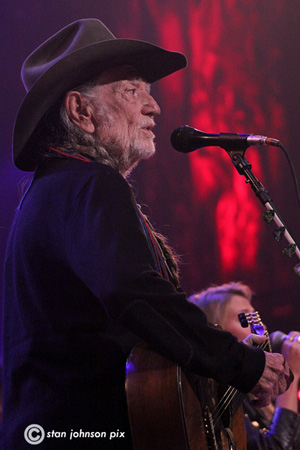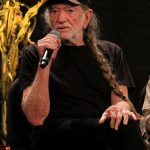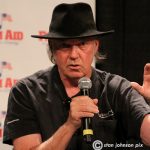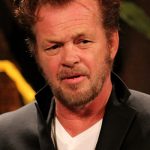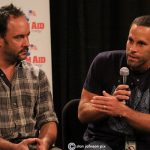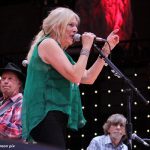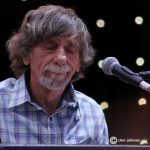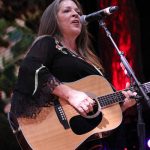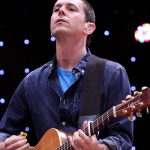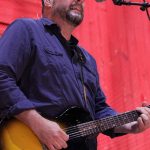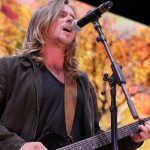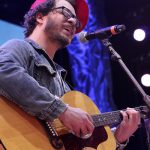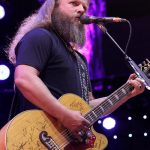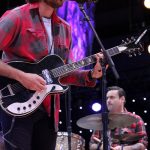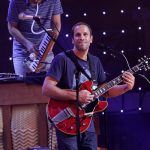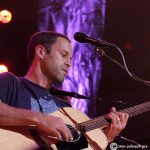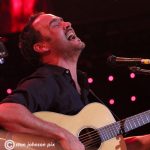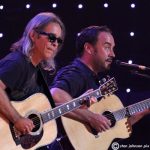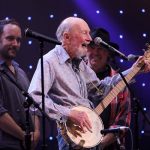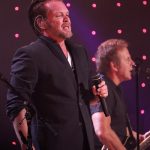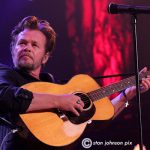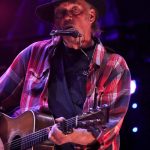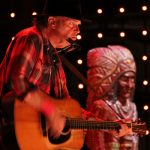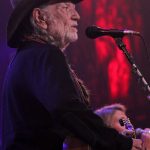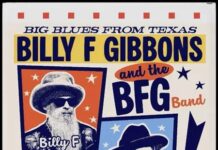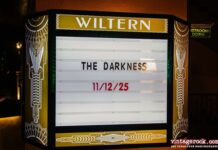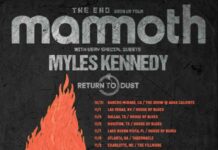Review by Shawn Perry
Photos by Stan Johnson
Now in its 28th year, Farm Aid has evolved over the years, focusing its efforts on a number of issues concerning the independent American farmer — from the hot-button climate control dilemma to the impact of genetically modified organisms (GMOs) to hydraulic fracturing technology aka fracking.
Indeed, farmers face many challenges in the industrialization of their business, and Farm Aid helps by bringing about awareness to a public mostly weaned and fed by a handful of unsavory corporations. At least that’s the perception when heavyweights like Willie Nelson (who turned 80 this year), Neil Young, John Mellancamp and Dave Matthews are speaking out. You know they’re going to get some attention.
This year, Farm Aid was staged in the heartland of upstate New York’s farming community where crops yield apples, grapes, cherries, pears, strawberries, cabbage, sweet corn, onions, snap beans, tomatoes, pumpkins, cucumbers, squash, green peas, cauliflower, oats and wheat. It certainly made more sense to have it at the Saratoga Performing Arts Center (SPAC), which can accommodate upwards of 25,000 with a lawn area and plenty of open space, then in some stuffy shed in New York City or Los Angeles.
Meet the Press
On the morning of the show, Nelson, Young, Mellancamp, Matthews and singer Jack Johnson joined moderator Curt Ellis, farmers Chuck Curtiss and Ben and Lindsey Shute, GrowNYC Youthmarket’s Jayson Rosado and Farm Aid executive director Carolyn Mugar for an hour-long press conference where each shared their role and weighed in on the current state of affairs concerning farming.
Willie Nelson, the president and founder Farm Aid, plainly stated the organization’s goals. “Twenty-eight years in a row, we’ve been trying to do the same thing — trying to call attention to the problems these farmers are facing every year and every day. And that’s our job — to call attention to it and let the people out there who know how to do something about it vote in the right people and vote out the wrong people. We’re turning it over to you.”
John Mellancamp, whom Nelson immediately contacted in 1985 when he hatched the Farm Aid idea, was a little more on point, given the fact that he was born, raised and still lives in a small town in Indiana. “I noticed farms and businesses in small towns closing. All of this stuff was disappearing,” he said before asking: “Why is this happening? Why is small-town America just disappearing?”

The singer of “Jack & Diane” and “I Fought Authority” talked about how Farm Aid was conceived when he spoke to Willie Nelson and Neil Young. He stated emphatically that it hasn’t been easy. “We were all naïve enough to think that we really have a role here; we had a lot of artists and a lot of attention was paid. And I thought we were going to make a huge difference. And we did make a huge difference to individual farmers.”
But, he cautioned, important government polices were not changing. Clearly, as Mellancamp and many others on the panel ascertained, the numerous issues surrounding farming and the food we eat today have broadened Farm Aid’s clarion call for going back to basics and giving back to the land. For Neil Young, however, the problem is much bigger than that. The real issue, he says, is climate change.
“Farmers are on the frontlines of climate change,” he said to applause. “And climate change is THE issue of the 21st century by far. We need to understand the farmer is the one who sees it first.”
For Young, it’s all about the land and sustainability. “Top soil is where the carbon is — where it used to be. Now, it’s in the sky. We got to get it back down to earth.”
He stressed that farmers shouldn’t cave in to the banks and corporations that promote industrialized farming methods harmful to the environment. “Make it sustainable, make it clean,” he stressed. “If we grow like the corporate farmers, we’re going to trash this place.”
Matthews, who was born in South Africa, but grew up in New York, said when he played Farm Aid for the first time in 1994, he became more aware of the issues surrounding farming and how we get our food.
“We can eat well if we know what we’re eating. And I think the knowledge is growing,” he said, before adding that mainstream media and our government, whom he feels are responsible in helping to address and regulate the issues of farming, are “owned by big money.”
Johnson, fifth on the bill, spoke about his organization the Kokua Hawaii Foundation, which educates kids about farming, gardening and nutrition in Hawaii where the musician lives. “Ninety percent of our food is shipped into Hawaii. That’s a real staggering statistic to learn when we could be growing so much there.” he announced. “That’s the big thing in Hawaii — trying to get more of our food grown there.”
All of the panel members know what needs to be done, but the usual red tape, funding and corruptible elements present real challenges. On that note, Farm Aid’s main goals are awareness and educating people about the plight of the independent farmer in an industrialized world.

The Concert
The concert started promptly at 12:30 with Willie Nelson, backed by the multi-Grammy winning Blackwood Brothers Quartet, for a short introduction. Jesse Lenat, Sasha Dobson and Insects & Robots (featuring Willie Nelson’s son, Micah) followed with short sets.
The larger outdoor amphitheatre area filled up quickly, while the indoor theater with reserved seats was fairly sparse throughout the afternoon. If you didn’t want to take in the music, you could wander towards the back where Homegrown Village awaited. Here, you could learn basic agrarian skills and listen to various distinguished guests, many of whom were performers on the bill, speak out on farming and food issues. Even the concessions were selling food sourced organically through local farms. The six-dollar veggie burritos were delicious and the apples, at two bucks a pop, were fresh and crispy. Too bad the Magic Hats #9’s didn’t last into the night.
Just after 1:30, Pegi Young and the Survivors hit the stage to a mild reception. The Survivors — keyboardist Spooner Oldham, bassist Rick Rosas, guitarist Kelvin Holly, and drummer Phil Jones — were joined by Young’s husband, Neil, who stayed under the radar and ceded the spotlight to pretty much everyone else. He knew his time would come. The subdued, yet enticingly loose set included the jazz-flavored “Better Living Through Chemicals” and a stab at Oldham’s “Lonely Women Make Good Lovers.”
Bahamas followed and then it was Carlene Carter’s turn. With a country music heritage that goes back to the Carter Family (her mom is June Carter Cash), the singer came out with an acoustic for a couple numbers before Willie Nelson’s renowned harmonica player Mickey Raphael joined in.
Lukas Nelson and Promise of the Real were next, and they definitely kicked up a storm from the more country-based acts. The 24-year-old other son of Willie began with “Love Is A Four Letter Word, “a nod to Dylan’s “Maggie’s Farm” and dedicated “I’m Giving You Away But I’m Never Going To Let You Go” to Neil Young’s daughter Amber, who recently got married. “I was sitting in my daddy’s car with a joint in both of my hands,” he sang in “Don’t Take Me Back” before plucking a few notes ala Hendrix with his teeth. They say Lukas is the future of Farm Aid, and by the looks of it (and the number of sit-ins with other acts to follow), it’s obvious he’s got the title clinched.
One of the acts Lukas accompanied was 90s alternative band Toad The Wet Sprocket for a sprite rendition of “Shotgun Willie.” As if the Nelson Family hadn’t already made their presence known at Farm Aid, Willie’s daughter Amy came up to sing along on Toad’s 1991 hit, “Walk On The Ocean.” Amos Lee and Kacey Musgraves stripped it back with moving, half-hour acoustic sets. Lee’s was particularly curious as he strummed easily through tunes from his Mission Bell album and closed with Sam Cooke’s “A Change Is Gonna Come.”

Then it was time for the Johnsons. Willie Nelson came out to introduce Jamey Johnson, another country favorite and his seven-piece band. Lukas Nelson came out for a couple numbers, Johnson expressed his dismay in “High Cost Of Living,” and capped off his set with a brooding version of “You Are My Sunshine.”
Jack Johnson, introduced by Dave Matthews, followed with a 45-minute set that featured a generous selection of the singer’s breezy tunes. Lukas Nelson played lead on “Flake” and together with Johnson and his band, they had a go at Led Zeppelin’s “Whole Lotta Love.” Bassist Merlo Podlewski did a little rapping on “Staple It Together,” and the set ended with a light, subtle swipe at Jimi Hendrix’s “Crosstown Traffic.” Even though the bounce that flows through Johnson’s music tends to grow a bit repetitious, the Farm Aid crowd filling in the theater and upper reaches of the amphitheatre ate up each and every note as they settled in for the final four headliners (and Farm Aid board members) of the night.
It’s unfortunate Dave Matthews and Neil Young didn’t have back-up bands tonight, but both made up for it with sheer bravado and rawness. Unlike Young, however, Matthews wasn’t alone — he had his compadre Tim Reynolds for some harrowing acoustic trade-offs. Of all the performers on stage today, Matthews may have commanded the most allegiance as he and Reynolds ran through 45-minutes of songs culled from the extensive DMB catalog, including “Save Me” and “Grace Is Gone.” Reynolds brilliantly displayed his handwork on “#41,” as Matthews and the audience looked on, their jaws agape at the wonder of it all.
John Mellancamp and his full band took the opportunity to familiarize the predominantly young audience with his numerous hits. “Authority Song” and “Check It Out” drew a big response, while Mellancamp, alone with his acoustic, squeezed the life out “Jack & Diane.” But really, a big reason why Mellancamp, likely the man with the most pop hits on the bill, was here were songs that address farming and small-town America like “Small Town,” “Rain On The Scarecrow,” “Paper In Fire” and “Pink Houses.” When he rhetorically asked, “Ain’t That America…home of the free?,” everyone sang along in as if the words addressed every issue on the table.

The big surprise of the day was undoubtedly an unannounced appearance by Pete Seeger. At 94, the celebrated folk singer strummed his banjo and sang “If I Had Hammer (the Hammer Song)” before being joined on stage by Willie Nelson, Neil Young, John Mellancamp and Dave Matthews for a joyful swing through “This Land Is Your Land.” He may have been the oldest man in the building, but Seeger hit a chord when he added in some new verses and exclaimed, “New York was meant to be frack-free,” referencing another hot-button issue that affects American farmlands.
I wish I could say Neil Young played a spectacular set, but it wasn’t even close. I knew I should have caught him and Crazy Horse at last year’s Farm Aid because this year it just didn’t seem like a very inspired performance of mostly covers and tepid runs of “Old Man” and “Heart Of Gold.” Young spent a good portion of his set ranting about many of the same things he covered at the press conference — topics most of the audience hadn’t been privy to (and apparently of little interest to those who heckled the singer). As for the music, fans had to contend themselves with plaintive readings of Bob Dylan’s “Blowin’ In The Wind” and Tim Hardin’s “Reason To Believe.” Still, you have to applaud Young for being as unpredictable, sincere and passionate as ever.
As the show’s closer, Willie Nelson went off on a 16-song bender that included favorites of his own (“Whiskey River,” “Crazy”) and covers by everyone from Ed Bruce (“Mamas Don’t Let Your Babies Grow Up To Be Cowboys”) to Pearl Jam (“Just Breathe”). Joined by son Lukas, his sister Bobbie, drummer Paul English and the rest of the extended Family band, Nelson took his trusty Trigger acoustic through the loop, picking out intricate leads and pulling the strings just right. He invited Lily Meola up for a slow duet of Waylon Jenning’s “Will You Remember Mine” and delivered a rousing sing-along of “Roll Me Up And Smoke Me When I Die.” He finished up the night with Hank Williams’ “I Saw the Light,” welcoming all of the day’s performers on stage for the big finale. Even the light rain couldn’t spoil the mood as the 28th Farm Aid came to a festive and resounding end.



